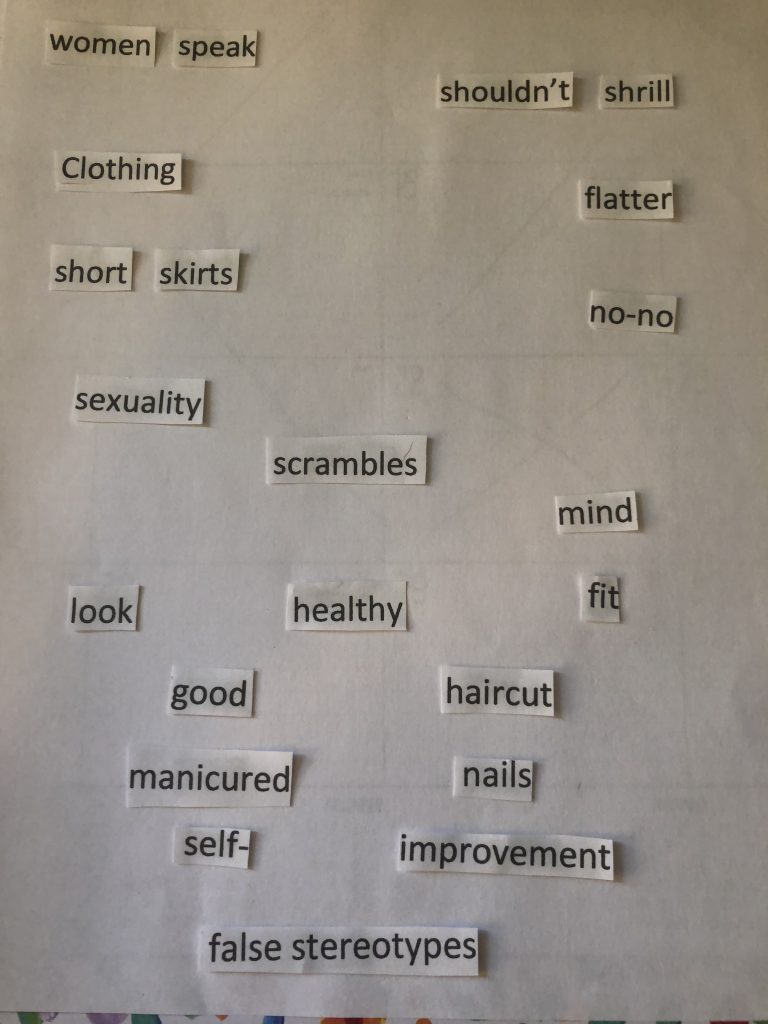By Leah
The character of Beneatha is either loved or hated by the
audience in A Raisin in the Sun depending on the version of the play. In
the written play, Beneatha can be seen by the reader as a strong, mature women
who prioritizes her education and strives to become a doctor. Her character in
the movie; however, is shown as a child who hasn’t matured and takes everything
for granted. We can see these two types of Beneatha’s in the scene with Mama
and Ruth and the later scene with Asagai.
Towards the beginning of the play, we have the scene between
Mama, Ruth, and Beneatha about marriage and religion. Beneatha states that “[She’s]
not worried about who [she’s] going to marry yet-if [she’s] ever get[s] married.”
(50). Then she goes into her beliefs about religion and how “It’s all a matter
of ideas…” (51) which triggers Mama to the point where she smacks Beneatha
across the face. In the written play, she comes across more passionate about
how she views her beliefs and she want to explain her beliefs to Mama and Ruth.
With Beneatha’s education, she believes that God shouldn’t be “getting credit
for all the things the human race achieves through its own stubborn effect.”
(51). Her education has shown her that humanity has created so many objects
throughout time and with that realizes that God hasn’t done anything for anyone.
In the movie; however, she appears to be pushy with her actions towards her
family. While Beneatha is talking to both women about her beliefs, the camera
keeps cutting back to both Ruth’s and Mama’s reactions. At the point where
Beneatha explains that “God hasn’t got a thing to do with it.” (50), both women
stop their tasks and stare at Beneatha with disbelief. As Beneatha continues talking,
Mama gets seriously angry at Beneatha and calls her a child. In the movie, Beneatha
thinks she knows everything about life but doesn’t realize what sacrifices Mama
had to go through to get Beneatha and Walter to church every Sunday.
Later, in the play, the reader comes across the scene
between Beneatha and Asagai. In the written play, Beneatha appears to be passionate
about her curiosity for Africa with Asagai. Asagai even explains to Beneatha
about their first meeting at their school. At that time, she asks him questions
“About Africa” (62) and how she was “looking for her identity” (62). With her
schooling she starts to question her own heritage and wonders if Africa is
where she belongs instead of America. Even with the stage direction it shows
that Beneatha is passionate about her own beliefs and how she isn’t an assimilationist
like the rest of her family. On page 63, her stage direction wants the
character of Beneatha to be “Wheeling, passionately, [and] sharply.” Even
though she may seem passionate on paper, on the big screen she appears to be
childish. With the same scene of being called an assimilationist, her tone of voice
appears to be whiny instead of sounding like a mature woman. Then when Asagai tries
to reference marriage or a relationship to Beneatha, she explodes about how she
is “not interested in being someone’s little episode in America…” (64).
Beneatha is educated women who can be interpreted as either
mature or childish. She knows a lot the outside world of Chicago through her
college with books, but she hasn’t gone out to the real world and implement those
teachings like Mama. She hasn’t seen how much her mother has scarified for her
to have a better life and career for her and she hasn’t realized that her heritage
is really in America with the rest of the Younger family.
Discussion Questions:
- What other examples are shown throughout the
play that makes Beneatha mature or childish?
- How are Beneatha’s actions similar or different
to her actions shown in the movie?

